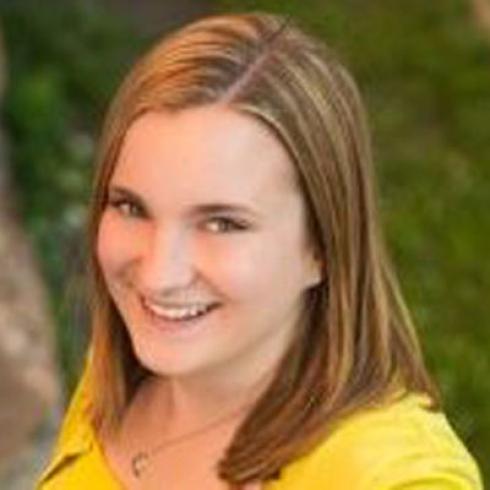On Friday, I attended a lecture at Oxford University. On Saturday, I visited Cambridge University. On Sunday, I met some students at the London School of Economics as well as the Bishop of London.
If you’re hearing a strange buzzing in your ears now, it’s probably the sound of me screaming with excitement from beyond the keyboard.
As a first-generation, low-income college student from small town Ohio, I can honestly say I never expected to do any of those things— let alone do them all over the course of only three days.
But I’m noticing that strange, miraculous things can happen here in London. And they can happen even to people like me.
On all three days, I found myself fighting through my own sense of inadequacy. I’ve always dreamed of attending Oxford (and I'm definitely going to apply after graduation next year), but as I toured the campus I kept noticing the places where I was lacking. I was not as intelligent or cultured, and likely nowhere near as wealthy, as the students I saw around me. I felt the same way as I wandered Cambridge, a university whose illustrious alumni include Charles Darwin and Stephen Hawking. Conversing with students at the London School of Economics made me painfully aware of my Midwestern accent and just how many times I say “like” during normal conversations. And I was couldn’t stop thinking about my shortcomings when I found myself face-to-face with the Bishop of London, a man who presided over Margaret Thatcher’s funeral and William and Kate’s royal wedding.
Every American knows at least some stereotypes about the English. English citizens are often pictured as mannerly, highly class-conscious, and sometimes even stoic and unemotional. There are countless portrayals of the monocle-clad Englishman, egotistical and obsessed with pedigree, in American pop culture.
Prior to my time in London, I subscribed to many of these stereotypes as well, so it’s no surprise that these stereotypes were in the back of my mind as I prepared to go abroad. (It doesn’t help that I’ve spent more time watching Downton Abbey than I have watching the British version of The Office.) My family fretted over my wardrobe as I packed, making sure that I would look presentable. We had been advised that jeans were not acceptable for classes in the UK and that students only wear neutral colors. Online we read that British students dress up every day. In preparation, I packed many more dress clothes than casual clothes. I even packed three turtleneck different dresses.
After all of that fuss, it's reasonable to ask if my experiences in London have lived up to the hype about social class and appearance.
Honestly, they haven't at all.
It’s true that an English person will probably not apologize when they bump into you at King’s Cross, but that appears to be more of a function of living in the city than looking down on people. I (sadly) haven’t met a single person who wears a monocle. While many people in London are fashionable and smartly dressed, dressing up or wearing neutral colors is not a necessity. I’ve seen every single one of my professors teach in jeans. Many of the students in my Oxford class were dressed like normal American college students… minus the sweatpants. I’ve only worn a turtleneck dress once, and it was because I wanted to.
There were no alarm bells that signaled my socioeconomic status when I sat down for my lecture at Oxford. The barista at a Cambridge cafe smiled as he handed me my hot chocolate and didn't turn up his nose in disgust. The students I met at the prestigious London School of Economics were exceedingly kind and had great senses of humor. The Bishop of London ate pizza next to me, asked me about school and my time in London, and told me about the time a pig from Iowa pooped on the Archbishop of Canterbury.
I’m not kidding about the pig story.
I'm learning that so many of the barriers we construct between ourselves and other people are artificial. Factors like social status, wealth, intelligence, and education level are often presented as these uncrossable chasms that divide people. And they can be real boundaries that inhibit necessary conversations and true understanding. But I’m finding that even seemingly unbridgeable barriers between humans can fall away easily. Regardless of wealth or status, we are all only human. And that common humanity is global and cuts across cultural boundaries.
If you had asked me a week ago if I thought that I would carry out a conversation with the Bishop of London or even a student at Oxford, I would have said that it was impossible.
My time in London has a very funny way of proving me wrong.

Angela Pupino
<p>Hi, I’m Angela! I’m a junior at American University, where I’m majoring in International Studies and minoring in Public Health. I enjoy drinking hot chocolate, reading good books, and singing along to *every* song on the Hamilton soundtrack. I grew up in the Rust Belt, live in DC, and can’t wait to study healthcare and experience life in London. I’m not throwing away my shot!</p>









